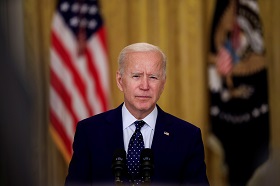It is clear why the Russia—U.S. Presidential summit is in the limelight of the world community. In the history of international relations, high-level meetings often become significant events that change the paradigm of bilateral and multilateral contacts. However, this happens when the accompanying factors—necessary for a reverse, revision, or update—mature. Experts agree that the depth of contradictions does not allow us to achieve serious changes. There are opinions that the summit will see an attempt to form some confrontation rules and establish a set of rivalry principles. In my opinion, this should not be expected for a number of reasons that lie in the structure of the contemporary international relations, which is transit in nature. Most likely, the summit will aim to establish personal contacts and tete-a-tete communication, dating in a new capacity.
In any case, a meeting is always better than no meeting. The summit being held signals that it is possible and necessary for the United States to deal with Russia. For the new administration, a meeting’s necessity is dictated by the diplomatic structures and the need to establish personal contacts. Indeed, today the relations between the two nations cannot be called normal, working and effective. Given the military and geopolitical capabilities of the two countries, this fact itself is fraught with many threats, security dilemmas and conflict potential. A normalization in relations is a necessity, both for bilateral cooperation and for the global system. At the same time, the prospects for finding any common denominators are shallow. Moreover, this is practically impossible and—given the worldview perspectives of two countries—untimely.
The difficulties of normalization, in my opinion, lie in the systemic factor. Actors see the world, processes, practices, and the international relations system in different ways. Looking at the same things, Russia and the United States see them in contrasting ways, which complicates things and any substantive discussion, not to mention setting rules of the game. There is no consensus or compromise in understanding the international relations system, the role of states, IGOs and NGOs. In Russia, they believe that the United States is in decline. America is convinced that Russia is in decline. In Russia, the realist approach is not only dominant but, perhaps, the only acceptable option for the Kremlin, as the geopolitical interpretation of events seems to be the only relevant mindset.
How to avoid conflict, security dilemma and come to normalization? Today, there is probably no answer to this question. Stability requires institutions. This concept is much broader than organizations, fora or conferences. The institutional theory assumes that actors, bound by some common rules, norms and practices, will find a common language more easily, while the potential for conflict will be controlled. For the relations to be institutionalized, the necessary criterion is the legitimacy of recognizing a vis-à-vis as well as its rights, role and equality. This, unfortunately, is absolutely absent in the Russian-American relations.
It is clear why the Russia—U.S. Presidential summit is in the limelight of the world community. In the history of international relations, high-level meetings often become significant events that change the paradigm of bilateral and multilateral contacts. However, this happens when the accompanying factors—necessary for a reverse, revision, or update—mature. Experts agree that the depth of contradictions does not allow us to achieve serious changes. There are opinions that the summit will see an attempt to form some confrontation rules and establish a set of rivalry principles. In my opinion, this should not be expected for a number of reasons that lie in the structure of the contemporary international relations, which is transit in nature. Most likely, the summit will aim to establish personal contacts and tete-a-tete communication, dating in a new capacity.
The Geneva summit of June 16, 2021 has been prepared for a long time and resulted from a telephone conversation between the presidents as well as the subsequent work of the United States and Russian diplomatic services. The Russian-American relations have always been about security, strategic stability, and world order. Bilateral relations are kept to a minimum, and economic cooperation is at its minimum levels. The depth of contradictions regarding regional conflicts does not allow us to expect any serious changes. Theoretically, a successful dialogue can be achieved in those areas that account for similar interests and do not contradict the interpretations of national security. This could be the Iranian, Syrian and Afghan dossiers. In fact, there have never been insurmountable contradictions as regards these issues. In turn, the Ukrainian crisis is viewed by the parties from fundamentally different approaches, with the situation in the Eastern European country seen as the opposite. The conversation here will probably be short, and a compromise will not be found. The issues of strategic stability and arms control also have different interpretations, but at least so far, they have not been fundamental. Perhaps, these are all problems where some understanding could be achieved. In short, the agenda is broad but rather unpromising.
In any case, a meeting is always better than no meeting. The summit being held signals that it is possible and necessary for the United States to deal with Russia. For the new administration, a meeting’s necessity is dictated by the diplomatic structures and the need to establish personal contacts. Indeed, today the relations between the two nations cannot be called normal, working and effective. Given the military and geopolitical capabilities of the two countries, this fact itself is fraught with many threats, security dilemmas and conflict potential. A normalization in relations is a necessity, both for bilateral cooperation and for the global system. At the same time, the prospects for finding any common denominators are shallow. Moreover, this is practically impossible and—given the worldview perspectives of two countries—untimely.
The difficulties of normalization, in my opinion, lie in the systemic factor. Actors see the world, processes, practices, and the international relations system in different ways. Looking at the same things, Russia and the United States see them in contrasting ways, which complicates things and any substantive discussion, not to mention setting rules of the game. There is no consensus or compromise in understanding the international relations system, the role of states, IGOs and NGOs. In Russia, they believe that the United States is in decline. America is convinced that Russia is in decline. In Russia, the realist approach is not only dominant but, perhaps, the only acceptable option for the Kremlin, as the geopolitical interpretation of events seems to be the only relevant mindset.
How to avoid conflict, security dilemma and come to normalization? Today, there is probably no answer to this question. Stability requires institutions. This concept is much broader than organizations, fora or conferences. The institutional theory assumes that actors, bound by some common rules, norms and practices, will find a common language more easily, while the potential for conflict will be controlled. For the relations to be institutionalized, the necessary criterion is the legitimacy of recognizing a vis-à-vis as well as its rights, role and equality. This, unfortunately, is absolutely absent in the Russian-American relations.
Russia sees the world as multipolar, regarding itself as a great power—equal to the United States and China. Following this logic, Moscow demands an appropriate attitude and equality. Russia’s perspective on global processes reflects the growing influence of non-Western actors outside of liberal multilateralism. Moscow denies the international relations liberal theory in much the same way that the founders of the basic IR theory, Edward Carr and Hans Morgenthau, did. The liberal approach, and hence the vision of the United States, is seen as idealistic. In addition, individual divergences are treated not as exceptions to the rules but as an actual refutation of the theory itself. And the discourse hides real geopolitical goals that have nothing to do with its interpretation.
The dominant schools of international relations in the United States reject realist theory and, more importantly, see it as a problem of the current state in global politics. In addition, geopolitics and its methods are called obsolete. The consensus position believes that realism is refuted, as it fails to catch the zeitgeist of the much broader and more complex world. Consequently, the interpretations, practices, motives and arguments of the Russian side are not taken in at all. Their actions, in turn, are interpreted from the standpoint of critical, liberal approaches and methodologies of the English school. The dominant schools in the U.S. see the issues of national sovereignty, the role of non-state actors and military force differently. Some postulates neutralize the very concept of sovereignty and the main tenets of realism. Regional crises are considered not from the standpoint of security and geopolitics but as something essentially predicted by the dominant schools in the West, namely the desire of some states to become part of the family of democracies.
According to the English School, the United States treats NATO as a community of nations, believing the rhetoric of the alliance should be based on the need for securitization, as is required by the Copenhagen theory. The rhetoric from these points of view is aimed at the epistemological community, fixing the enemy to strengthen unity and security procedures. In Russia, which proceeds from classical realism or neorealism, we tend to think of NATO as of a military-political alliance that defends the geopolitical interests of a bloc of countries rather than of a community of global police officers. Numerous crises in Syria, Iraq, Libya, and Ukraine are seen as attempts by the Atlantic alliance, which seeks hegemony, to expand its sphere of influence. The consequences are extremely negative, as they are deemed to be destabilizing, rooted in irresponsible decisions that ignore the social and regional characteristics of nations. NATO’s direct or indirect involvement in crises is seen as a threat that creates numerous security dilemmas. Moscow sees the strengthening of NATO and the United States as a threat to its national interests and security.
The practices, motivations and characteristics of a multipolar, unipolar or bipolar world are fundamentally different. Consequently, looking at the world through the prism of these theoretical interpretations leads to different, often mutually exclusive readings of the same processes. Indeed, the rules of international relations designed in 1945 and updated following the Cold War need to be revised. However, the leading actors are not going to do this yet, which, apparently, is a sign that the critical potential is lacking at this point. Amid unformed transit world order, which is in some cases similar to the Brownian motion, agreeing on rules of confrontation is inherently difficult.
Today, the relations between Russia and the United States are abnormal, irrational, lacking in systemic thinking, clear goal-setting, and acceptable practices. An experienced administration of professionals has come to power in the United States, and the fact that the summit is to be held demonstrates that the dialogue with Moscow is not toxic. Minimalism and the attempt to focus on small things to achieve practical results may well be the most positive scenario of the summit. At the same time, the transit nature of the current international relations system, which seems to be moving from a unipolar to a multipolar world, prevents the parties from understanding, hearing and accepting each other.
The United States as the largest and the most powerful superpower is experiencing a post-hegemony state, as Robert Cohen puts it. It is increasingly at odds with the new pole of power, China. Russia, not being a full-fledged superpower, is limited in its actions and resources, however, reluctant to give in and believing it is in its national interests to nominally keep a distance from the West. Moscow needs to establish fair relations with the global West, of which relations of equality will be the foundation. At the same time, there is no sound alternative to the ideological construction of a transit world order. The rules of confrontation are, in fact, a kind of detente which recognizes the legitimacy of each party’s demands. Under the transit era, it will be extremely difficult to arrive at.






